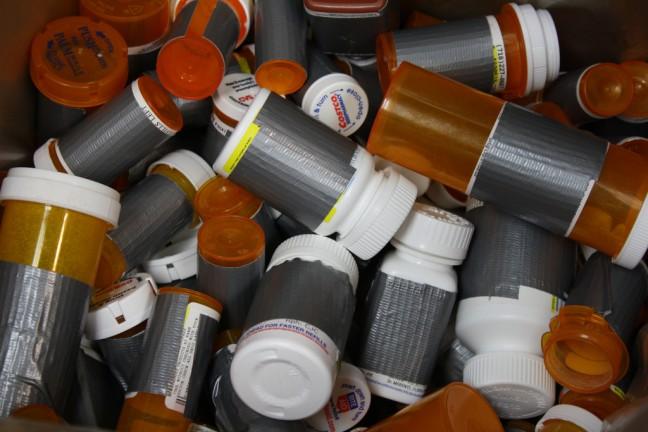Amid Wisconsin’s rising heroin and opioid epidemic, a lawmaker has proposed to ban a type of synthetic heroin that isn’t illegal and has already killed two in the state.
Rep. Joel Kleefisch, R-Oconomowoc, said he plans to introduce legislation to make a new form of synthetic heroin, known as U-47700, illegal. While all synthetic heroin is already illegal, this one is different because its chemical composition is distinct enough to not technically be considered heroin, he said.
“Criminals are constantly trying to stay ahead of the law,” Kleefisch said. “Now, we have a substance that can kill in the same way, if not more quickly, than heroin and it’s currently perfectly legal to possess or sell.”
The drug, which is nearly eight times more potent than morphine, has caused at least 50 documented deaths nationwide, including two in Racine County, Kleefisch said.
Current law mandates that for a chemical compound to be illegal, it has to be made up of a specific set of elements. Anyone who knows the law and knows some chemistry can change a synthetic opiate by one molecule and technically no longer be in violation of the law, Madison Police Department Lt. Jason Freedman, commander of the Dane County Narcotics Task Force, said.
Freedman said the number of people addicted to opiates has continually increased over time, causing a very high demand for synthetic heroin. Measures to cut into the supply of legally obtained opiates, has in turn increased demand for their illegal counterparts, he said.
Synthetic heroin is in such high demand because it saves money for those who buy and sell it, Freedman said. He said that users tell him they purposely seek out U-47700 because it is much more potent than regular heroin.
“People are always continuing to look for more — more bang for their buck, a more potent high,” Freedman said. “There’s so much money to be made in synthetic opiates because people are desperate.”
Freedman said MPD has been seeing the drug for less than a year, but it has already caused overdoses and deaths in Madison. Since the drug is so new, he said it is difficult to test and know exactly how many people it has affected.
The drug is typically produced overseas with very little regulation or control, Freedman said. This makes it likely that it will be cut with other drugs or chemicals, many of which are can be toxic. Kleefisch said users often have no idea how potent or dangerous the drug is compared to regular heroin, which puts them at a high risk of overdose.
“The biggest problem with buying synthetic heroin is that the user has no idea what it is or what is in it,” Kleefisch said. “A lot of times it can be thousands of times more potent than regular heroin, and have hundreds of times greater risk of killing victims.”
Freedman said other strains of synthetic heroin have been discovered in the past and have already been banned but new types keep popping up.
While banning synthetic heroin is an important step in the right direction, Freedman said the most effective measure would be to create an umbrella law that mandates: “if it looks like heroin and acts like heroin, it can be treated as heroin.”
Kleefisch said he plans to introduce the bill immediately in the next session.


